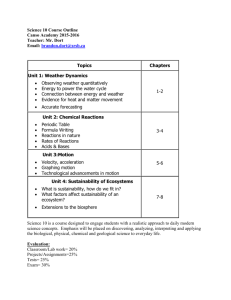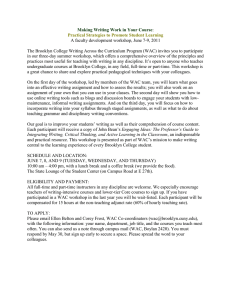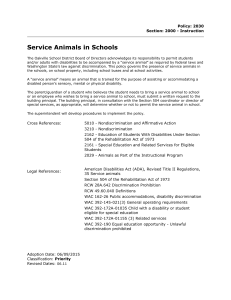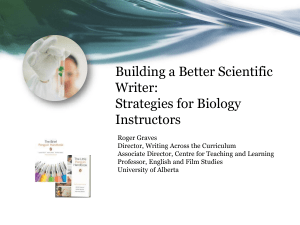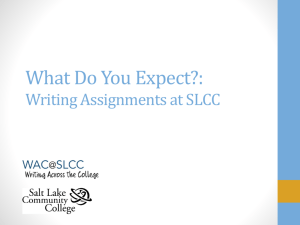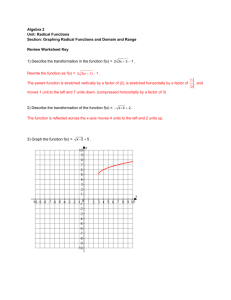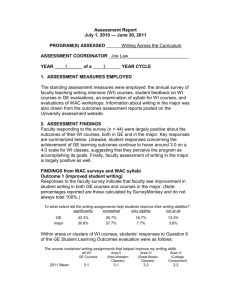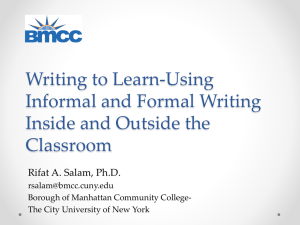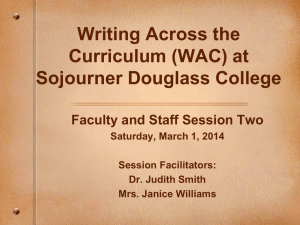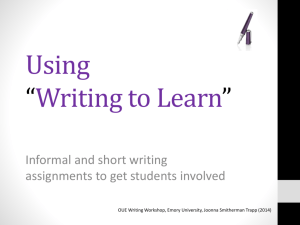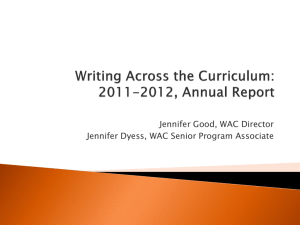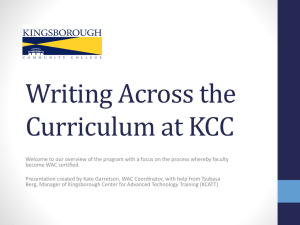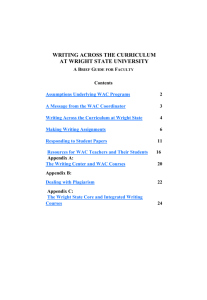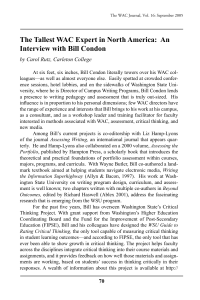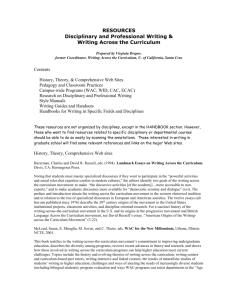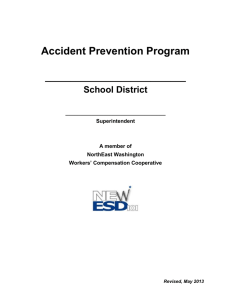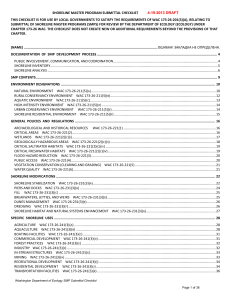leading change in sustainable enterprises - ii
advertisement
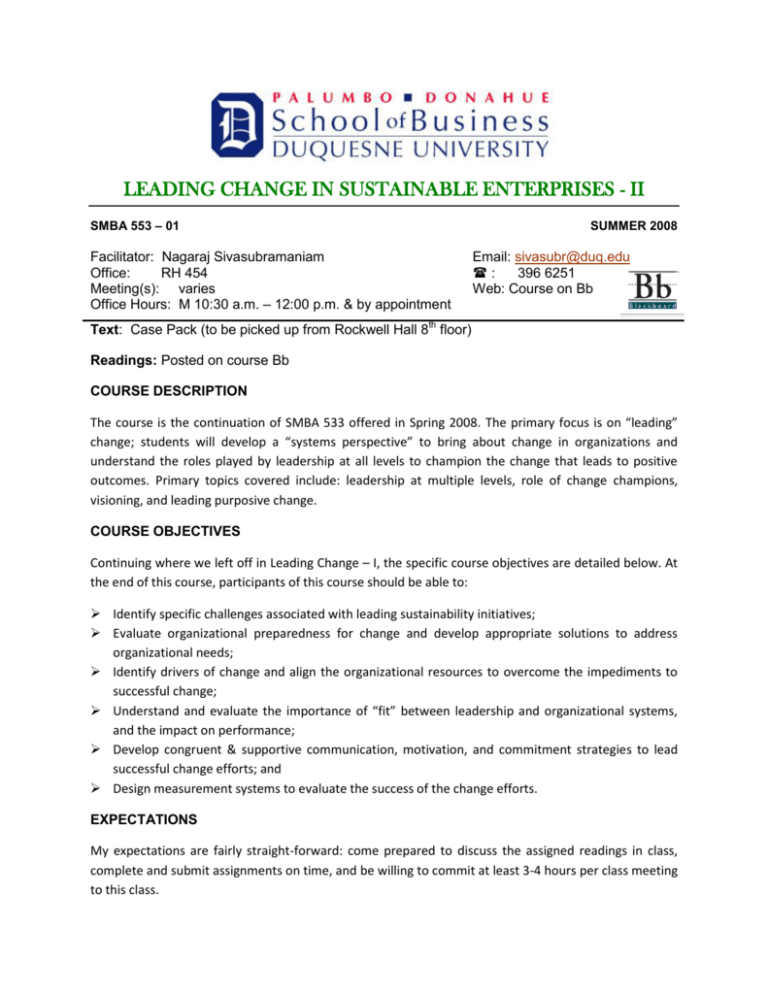
LEADING CHANGE IN SUSTAINABLE ENTERPRISES - II SMBA 553 – 01 Facilitator: Nagaraj Sivasubramaniam Office: RH 454 Meeting(s): varies Office Hours: M 10:30 a.m. – 12:00 p.m. & by appointment SUMMER 2008 Email: sivasubr@duq.edu : 396 6251 Web: Course on Bb Text: Case Pack (to be picked up from Rockwell Hall 8th floor) Readings: Posted on course Bb COURSE DESCRIPTION The course is the continuation of SMBA 533 offered in Spring 2008. The primary focus is on “leading” change; students will develop a “systems perspective” to bring about change in organizations and understand the roles played by leadership at all levels to champion the change that leads to positive outcomes. Primary topics covered include: leadership at multiple levels, role of change champions, visioning, and leading purposive change. COURSE OBJECTIVES Continuing where we left off in Leading Change – I, the specific course objectives are detailed below. At the end of this course, participants of this course should be able to: Identify specific challenges associated with leading sustainability initiatives; Evaluate organizational preparedness for change and develop appropriate solutions to address organizational needs; Identify drivers of change and align the organizational resources to overcome the impediments to successful change; Understand and evaluate the importance of “fit” between leadership and organizational systems, and the impact on performance; Develop congruent & supportive communication, motivation, and commitment strategies to lead successful change efforts; and Design measurement systems to evaluate the success of the change efforts. EXPECTATIONS My expectations are fairly straight-forward: come prepared to discuss the assigned readings in class, complete and submit assignments on time, and be willing to commit at least 3-4 hours per class meeting to this class. In turn, I promise to be available outside class hours to meet and discuss the course content, return graded assignments on time, and be willing to help in any which way I can to help you succeed in this course and the program. EVALUATION There are no exams in this course; instead, we will treat each class meeting as an “exam.” Your final grade in this course will be based on your performance in individual assignments and the group project. They are explained below: Individual Assignments Written Analyses of Cases (WAC). You are expected to submit a two-page analysis of the assigned case (no summary of the case should be included); include any detailed quantitative analysis as an attachment. Questions to guide the written analysis will be posted on our course Bb. Creativity & Leadership Experiment: You are required to conduct a personal experiment (as outlined in the reading); more details will be given in class. Group Project Working in a group of three/four students, you will choose a company that, in your opinion, is an ideal candidate for a sustainability change project. Based on both primary and secondary sources of information, identify two or three sustainability initiatives for this company to undertake in the next two years. Prepare an action plan to implement these initiatives. Your report should include detailed analyses of the firm, rationale for the sustainability initiatives proposed, leadership challenges, and specific guidelines to initiative and execute the change management project. Each group should obtain my approval of the company they chose. You will present your analyses and recommendations on July 16, 2008. Grading Individual Assignments WAC (three) Creativity & leadership Experiment Class Participation Group Project (written & oral combined) 45% 15% 10% 30% Note: In accordance with the John F. Donahue Graduate School of Business’ Code of Ethical Behavior, every student should place the following statement on all written work submitted for evaluation: “In accordance with the business school’s Code of Ethical Behavior, I attest that I have not engaged in any acts of plagiarism in completing this assignment.” Students are asked to sign this statement before submitting their work for evaluation (grading). CLASS SCHEDULE Meeting 6/10 Topic Envisioning the Future: The Leader’s Role Readings Reading Set #1 Assignment Watch: Interfaces CEO articulating his Environmental Vision Questions: 1. Can an environmental vision be successful without a sense of higher purpose? 2. What can leaders do to install a sense of higher purpose among employees? Reading Set #2 1. Leading Change: Answer the questions on page 18 of this note. 2. Changing the way we change: How is the approach described here different from the ones in the first article? From the theories described in Burke or Matejka & Murphy? 6/17 Leading Change: Review of different approaches 6/19 Case: Leading Change at Simmons (A) WAC #1 due; see Bb for assignment questions 6/23 Leading change creatively: Designing experiments Design your personal experiment based on the principles described in the reading; Report due 7/11/08; See Bb for additional instructions 6/25 Case: Christina Gold leading change at Western Union WAC #2 due; see Bb for assignment questions 6/26 Championing Change Reading Set #4 1. Transcendent Leadership: What is transcendent leadership? The authors describe the four levels of leadership – why has there been less focus on the first level? Is it important? Examples? 2. Secret Change Agents: Who are they? As a leader, how do you find them, nurture them, and leverage their passion to create the desired change? Examples? 6/30 Managing Radical Change Reading Set #5 1. Radical Organizational Transformation: What are the challenges of leading such a transformation? Examples? 2. Mark Twain Dilemma: Try and relate this dilemma at a personal, professional, organizational and social level; Relate FUD to what you read last semester 7/7 Case: Organizational Transformation: Agency for Volunteer Service WAC #3 due; see Bb for assignment questions 7/14 Changing others through changing ourselves 1. Changing others through changing ourselves: Of the ten ACT principles, which is the most challenging personally for you? Why? Can ACT help in leading the sustainability revolution? How? 7/16 Group Project Presentations Reading Set #3 Reading Set #6 Group Project Report Due Reading Set Articles marked * should be obtained individually via EbscoHost (Duquesne Library) Reading Set #1: Conger, J.A. (1991). Inspiring Others: The Language of Leadership. Academy of Management Executive, 5 (1), 31-45. O’Brien, F., & Meadows, M. (2001). How to develop visions: A literature review, and a revised CHOICES approach for an uncertain world. Journal of Systemic Practice and Action Research, 14 (4), 495-515. Reading Set #2: Clawson, J. (2001). Leading Change: A Technical Note. University of Virginia, Darden Business Publishing (UVA-OB-0648). *Pascale, R.T., Millemann, M., & Gioja, L. (1997). Changing the way we change. Harvard Business Review, (November-December). Reading Set #3: Friedman, S.D. (2008). Total Leadership: Be a better leader, have a better life (Chapter 6: Designing Experiments). Harvard Business School Press: Boston, MA. Reading Set #4: Crossan, M., & Mazutis, D. (2008). Transcendent Leadership. Business Horizons, 51, 131-139. *Pascale, R.T., & Sternin, J. (2005). Your secret change agents. Harvard Business Review, (May) Reading Set #5: Francis, D., Bessant, J., & Hobday, M. (2003). Managing radical organisational transformation, Management Decision, 41, 18-31. Pietersen, W. (2002). The Mark Twain dilemma: The theory and practice of change leadership. The Journal of Business Strategy, 23 (5), 32-37. Reading Set #6: Quinn, R.E., Spreitzer, G.M., & Brown, M.V. (2000). Changing others through changing ourselves: The transformation of human systems. Journal of Management Inquiry, 9 (2), 147-164.
